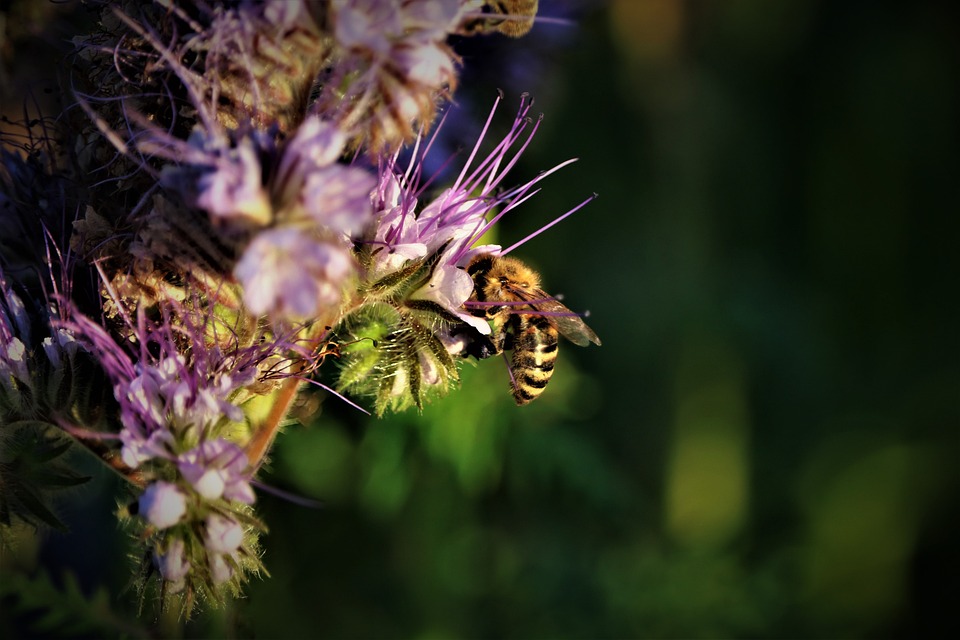Backyard Bliss: Create a Natural Insect-Free Zone with These Tips
Transforming your backyard into an oasis of tranquility and enjoyment is a goal for many homeowners. However, one major deterrent can be pesky insects that invade our outdoor spaces, making it difficult to relax and enjoy the natural beauty around us. Fortunately, you can create a natural insect-free zone without harsh chemicals or complicated solutions. Here’s how to achieve Backyard Bliss while keeping those unwanted pests at bay.
Understanding the Issue: Why Insects Invade
Understanding the reasons why insects are drawn to your backyard is the first step in creating a bug-free environment. Factors such as standing water, dense vegetation, and neglected areas can attract insects like mosquitoes, ants, and even flies. By addressing these environmental factors, you can make your outdoor space less inviting to these nuisances.
1. Tidy Up Your Space
A clean and organized backyard is the best defense against insects. Start by:
- Removing Debris: Clear away fallen leaves, branches, and other debris where insects like to hide and breed.
- Regular Mowing: Keep your grass trimmed and neat, as tall grass and weeds provide shelter for unwanted bugs.
- Clearing Standing Water: Regularly check for and eliminate any stagnant water in flower pots, bird baths, or clogged gutters, as these are mosquito breeding grounds.
2. Embrace Native Plants
Creating a natural insect-free zone can also be achieved through landscaping. Opt for native plants that not only thrive in your local environment but can also repel insects.
- Repellent Plants: Consider incorporating plants like lavender, marigold, citronella, rosemary, and basil. These varieties are known for their insect-repelling properties while adding beauty and fragrance to your garden.
- Companion Planting: Certain plants help keep insects away through natural deterrents. For example, planting garlic among your flowers and vegetables can deter aphids and other pests.
3. Attract Beneficial Bugs
While many insects are unwanted, some are incredibly beneficial for your garden. Ladybugs, lacewings, and certain bees play a crucial role in pollination and pest control.
- Create a Habitat: Establishing a habitat for these helpful insects can be as simple as adding a bug hotel, maintaining diverse plant life, and ensuring a consistent water source.
4. Natural Deterrents
In addition to revamping your garden, utilizing natural deterrents can keep insects at bay:
- Essential Oils: Spraying a mixture of water and essential oils like peppermint, eucalyptus, and tea tree oil can deter pests. Fill a spray bottle with water and add a few drops of essential oil for an aromatic insect shield.
- Soap and Water: A simple mixture of dish soap and water in a spray bottle can help control softer-bodied insects like aphids and spider mites without harming your plants.
5. Set Up Barriers
Sometimes, it’s best to create physical barriers to minimize insect access:
- Use Screens: Installing screens around porches and patios can keep bugs outside while you enjoy the fresh air.
- Mulch and Gravel: Strategic use of mulch and gravel can deter insects by eliminating hiding spots and reducing oversaturation of soil, which can invite pests.
6. Lighting Choices
Insects, particularly mosquitoes and moths, are often drawn to certain types of lighting. Minimize this attraction by:
- Opting for Yellow Bug Lights: These lights are less attractive to insects, allowing you and your guests to enjoy the evenings without constant swatting.
- Strategic Placement: Position lights away from seating areas to lessen insect draw directly to your outdoor space.
7. Regular Maintenance
Consistency is key to maintaining your insect-free zone. Incorporate routine maintenance into your outdoor schedule, such as:
- Regularly trimming plants and trees to reduce potential shelter for bugs.
- Monitoring any water features or garden spaces for new breeding areas.
- Routinely checking and replenishing natural repellants and barriers.
Conclusion: Your Dream Backyard Awaits
Creating a natural insect-free zone in your backyard is not only achievable but can also deepen your appreciation for the natural world. By implementing simple yet effective changes, you can cultivate a beautiful, serene outdoor environment where you can unwind, entertain, and bask in the beauty of nature—all without the annoyance of insects. So gather your gardening tools, and get ready to enjoy your own slice of Backyard Bliss!
